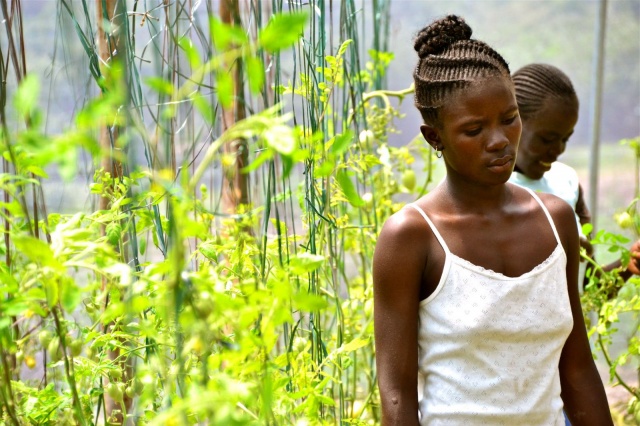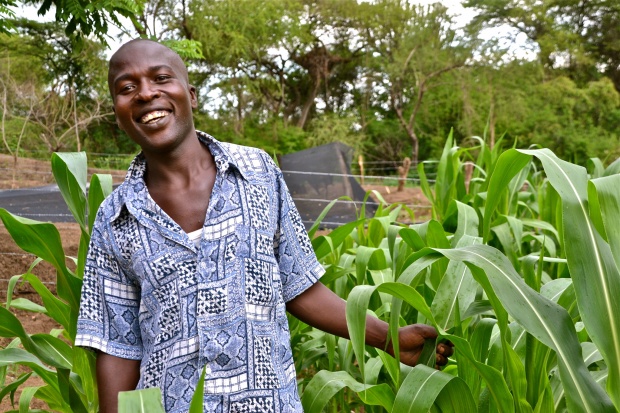The average African farmer’s age is nearly 60. Stakeholders come together to brainstorm pathways to draw young people into a rural way of life and climate-smart and digital agriculture is the best bet.
Article in collaboration with: CGIAR Research Program on Climate Change, Agriculture and Food Security (CCAFS) seeks to address the increasing challenge of global warming and declining food security on agricultural practices, policies and measures through strategic, broad-based global partnerships.
With the average African farmer’s age hitting nearly 60 years, the sector’s stakeholders have been diligently working to come up with measures on how to attract and retain youth in the sector. There have been a myriad of suggestions, but none of them seemed as attractive as engaging youth through climate-smart and digital agriculture.
Related topics: Youth-led research and its role in combating climate change – Can Sustainable Agriculture Mitigate Youth Migration? – Empowering Youth in Implementing the SDGs
In April 2019, thought leaders, policy experts, researchers, the private sector and youthful farmers joined a sizeable audience of participants at the first Agtech Africa summit, held in Nairobi, Kenya. These stakeholders came together to discuss the potential of climate-smart and digital agriculture in attracting young people and thereby rejuvenating an aging global agricultural sector.
Agriculture can only be 'cool' for the youth if they can make a decent living out of it. #AgtechSummit #SustainableAgricultureSummit #YouthinAgribusiness pic.twitter.com/dTQFhQefyx
— #FarmerInASuit (@IamVictorMugo) April 30, 2019
Victor Mugo, Country Coordinator for the Climate Smart Agriculture Youth Network (CSAYN), started by dispelling the notion that youth keep away from the farm because it is a ‘dirty job’. He went on to clarify that young people shy away from farming because it is not profitable: “With the train of risks that are often exasperated by climate change, young people see the sector offering little opportunity for economic enrichment and social fulfilment. Agriculture can only be cool if youth can make a decent living out of it.”
While concurring with Victor’s statement, Benson Mwendia, a young farmer who keeps poultry and grows watermelons, onions, okra and chillies, narrated his chilling experience with climate-related disasters that had wreaked havoc in his farm: “My farm sits only a stone throw away from River Sabaki and while I benefit from a regular supply of water, I am also constantly staring at the threat of flooding.”
For him, his saving grace was his introduction to climate-smart agriculture (CSA) and the reinforcement of this knowledge through Kilifi County’s Climate Risk Profile that elaborated the available menu of options on how to adapt to climate-related threats. “With the new knowledge, I have been able to significantly reduce some of the risks associated with growing these crops and I am now making a good return from my farming activities” he reported.

Engaging young people in agriculture is vital for the sector’s survival. Photo: C. Schubert (CCAFS)
Benson has also gone a step forward and turned his farm into a Climate-Smart Agriculture Excellence Centre (CSAEC). He now makes an extra income teaching farmers on how to strengthen their local capacity to adapt to perennial climate-related hazards through adopting CSA technologies and management practices.
The final panellist Philip Simiyu, a young maize farmer studying agricultural economics at the University of Nairobi, noted that although CSA increases agricultural production and builds the resilience of farmers, post-harvest losses and lack of stable markets water down all these gains. Even after increasing his maize produce, Philip shared how he suffered at the hand of poor market prices and pests that ate his profits away. Having learned his lesson, he now advises young farmers to acquire a market-oriented farming mind-set that allows them to ‘sell before they plant’.
George Wamukoya, a policy expert from the Africa Group of Negotiators Expert Supporter (AGNES) team brought the session to a subtle conclusion, warning that CSA was not a miracle solution. He advised that appropriate technologies and management practices needed to be matched with different weather conditions, soil state, topology and agro-ecological zone. However, he also noted that by using CSA, farming activities could become less risky and therefore more profitable. With this, young people could find it more appealing as a sector to venture into.
About the author: Victor Mugo is Country Coordinator at the Climate Smart Agriculture Youth Network (CSAYN). Hannah Kamau is Research Assistant at the World Agroforestry Centre (ICRAF). Seble Samuel is the Communications and Knowledge Management Officer for CCAFS East Africa.
EDITOR’S NOTE: The opinions expressed here by Impakter.com columnists are their own, not those of Impakter.com. Photo Credit: C. Schubert (CCAFS)











